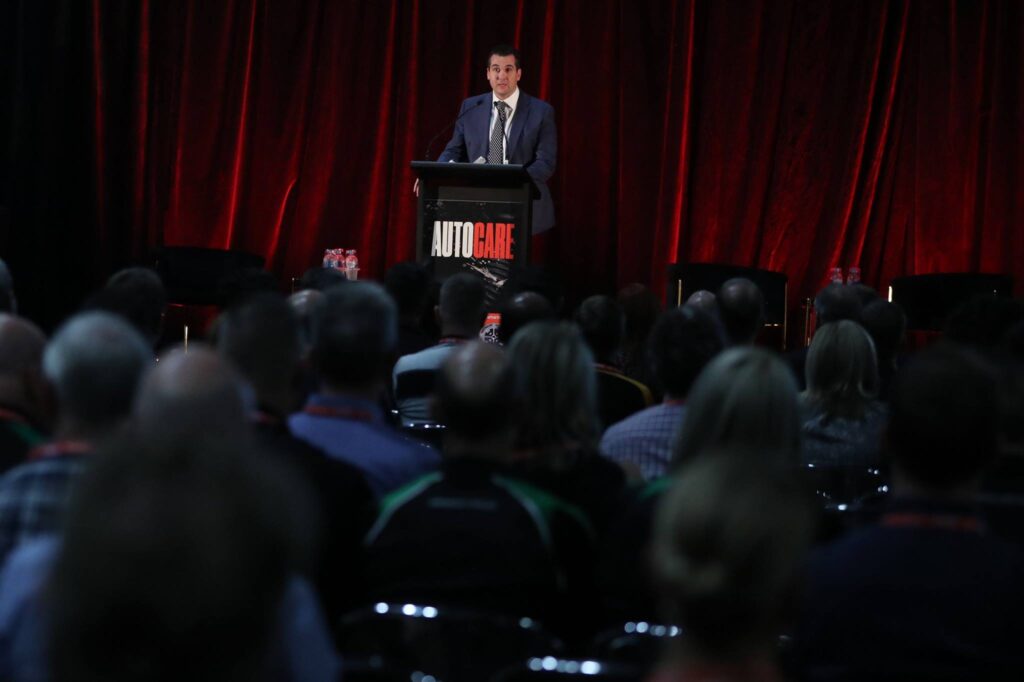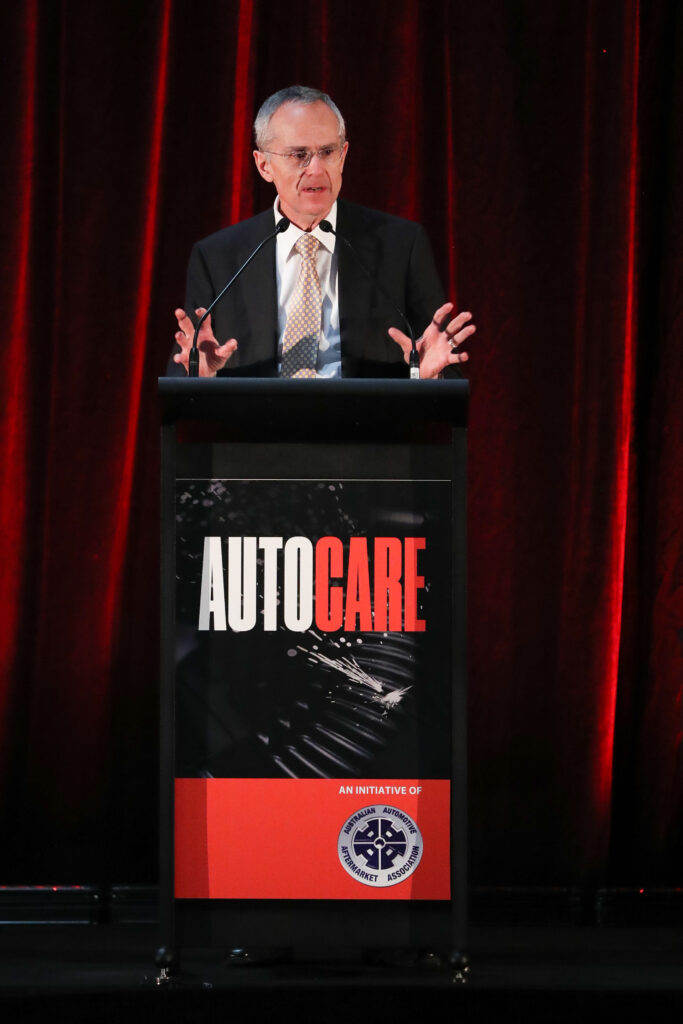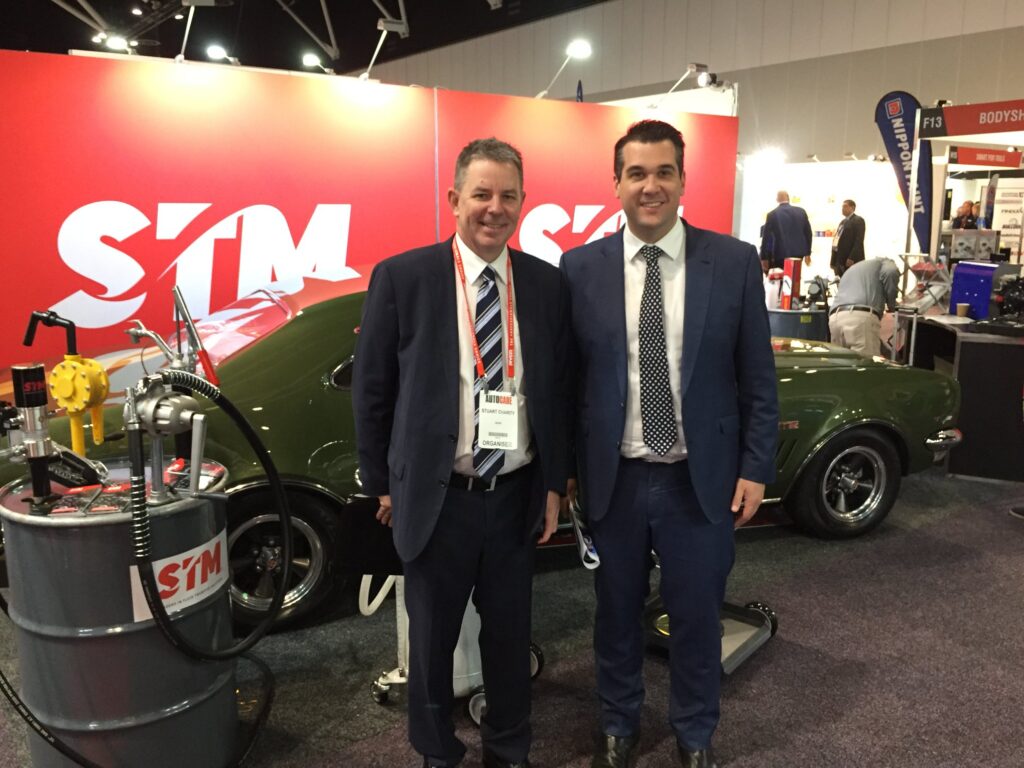PROGRESS AT LAST
- PostedPublished 1 May 2018
A FAIR go for independent repairers under a mandatory repair information sharing scheme is high on the Turnbull government agenda and has the full support of the Australian Competition and Consumer Commission (ACCC).
This was the clear message from assistant minister to the treasurer Michael Sukkar in his opening address to the Autocare 2018 convention in Sydney, and that of ACCC chairman Rod Sims who followed up with a starkly frank keynote speech at the event about the state of Australia’s car retail and repair industry.
Although Mr Sukkar stopped short of announcing a mandatory data sharing program, he pointed out that his presence at the event in the lead-up to the federal budget was symbolic of how seriously the government was treating the matter.
“I can assure you, a few days out from the budget, the fact that I’m here, I hope that indicates to you that it is one of the highest priorities of the government and certainly one of the highest priorities for me,” he said.

“I am here at the opening of Autocare 2018 to assure you that this is definitely a priority for the Government.
“The Government is actively working on the design of a mandatory scheme for the sharing of critical repair and service information with consumers and their choice of repairer, ensuring competition and fairness for Australian consumers.”
“It’s the government’s view that Australia deserves better, that you as independent repairers and industry deserve better and I can assure you today that is what we are seeking to do”
Autocare convention organiser, the Australian Automotive Aftermarket Association (AAAA), established the Choice of Repairer campaign in 2009 to fight for repair information sharing between vehicle manufacturers and aftermarket repairers on commercially fair and reasonable terms.

It now looks like the AAAA’s campaign may finally bear fruit before it turns 10 years old.
“After the comments made today in front of hundreds of AAAA members, it is very clear that we are nearing the end of the road to gaining a mandatory code for our industry,” said AAAA executive director Stuart Charity.
“That the government is now actively working on the design of a mandatory data sharing scheme I think is very reassuring.”
As he wrapped up his Autocare speech, Mr Sukkar revealed his personal reason for helping push for mandatory repair information sharing.
“If I look at my own life, I have had the same mechanic for 25 years and irrespective of the car I drive, I want to take my car to him and I don’t want any barriers in the way of being able to do that, seeking the person that I trust and know has done a wonderful job for me for 25 years,” he said.
“I hope you understand this is something we are very committed to, we don’t want to drag our feet on it, we want to work as fast as humanly possible.”
Why the government is now acting
Those assembled at the Autocare keynote speech by ACCC chairman Rod Sims were left in no doubt as to the consumer and competition watchdog’s scathing position on the behaviour of Australia’s auto retailing and repair sector.
Print cannot do justice to the tone of Mr Sims’ address and while he chose his words carefully, he certainly did not mince them.
He said the ACCC recommended the government mandate repair information sharing because its market study “found numerous problems with the detail and timeliness of the information given by car manufacturers to independent repairers, despite their voluntary commitments”.
“Ultimately, we formed the view that few car manufacturers provided equivalent access to the technical information provided to their authorised dealers and preferred repairer networks,” he said.
Of course these actions are inconsistent with the commitments made in the voluntary Heads of Agreement on Access to Service and Repair Information for Motor Vehicles signed in December 2015 by the AAAA, Australian Automobile Association (AAA), Australian Automotive Dealer Association (AADA), Federal Chamber of Automotive Industries (FCAI) and Motor Trades Association of Australia (MTAA), followed by the development of voluntary Codes of Practice by these organisations for their members to follow.
“On this basis, we concluded that voluntary commitments to share technical information had not been successful and would not work,” said Mr Sims.

He added that it was no surprise that manufacturers were reluctant to share information with independent repairers “when they have incentives to drive consumers to dealerships instead”.
Mr Sims outlined three potential methods for instituting mandatory data sharing: A change to the Australian Design Rules, a mandatory industry code administered by the ACCC or standalone legislation.
“Australia might not manufacture cars anymore, but we can still apply the Australian ‘fair-go mindset’ to how we do business,” he said.
“This ‘fair go mindset’ has been noticeably missing recently; it must be restored.”
Describing the market study as “a game changer”, Mr Charity credited the ACCC with “cutting through the confusion created by vastly opposing views on the existence and extent of the problem”.
“The ACCC managed to break a five-year impasse by undertaking extensive primary research in addition to a forensic review of claims and counter-claims and by undertaking field work to see what was actually happening at the coalface and how that impacted Australian car owners.
“Both Minister Sukkar and Mr Sims’ speeches reflect their commitment to developing the reforms that will protect 16 million Australian car owners along with their freedom of choice in selecting their automotive repairer.”
- CategoriesIn SightGlass
- TagsSightGlass News Issue 13

